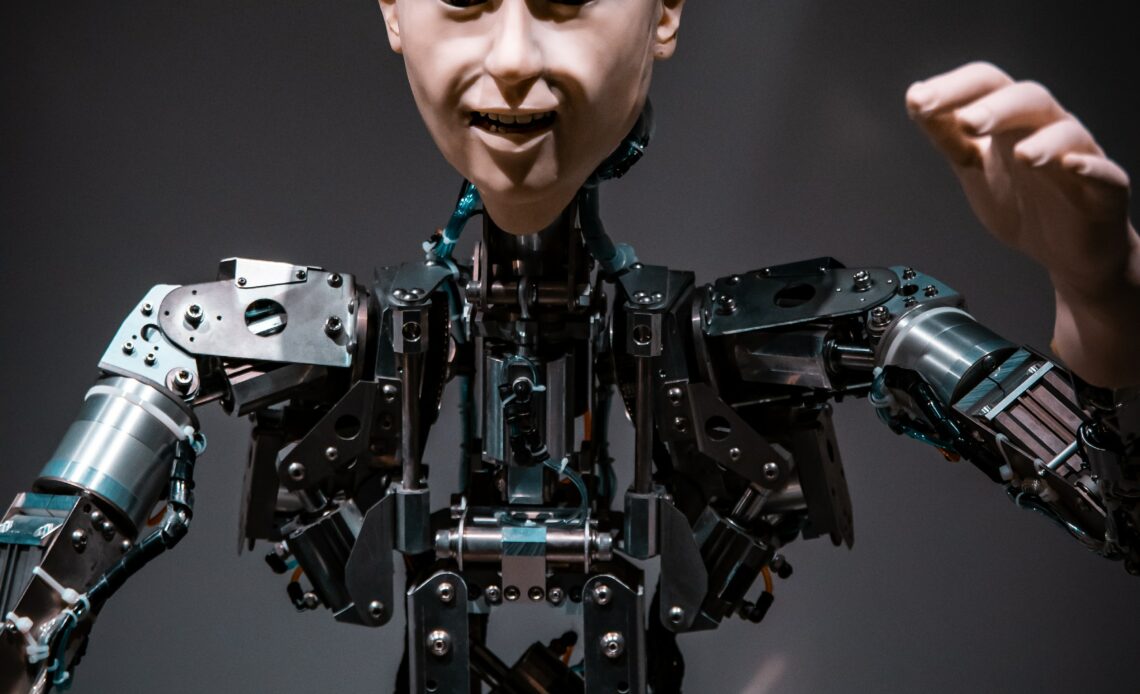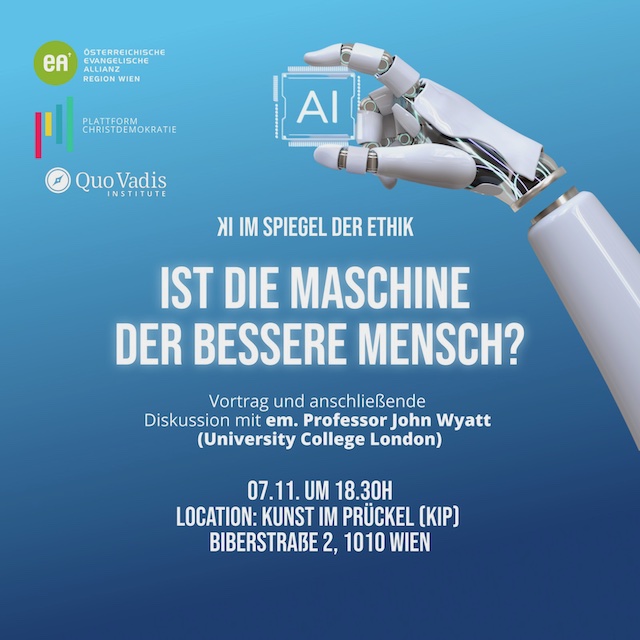
Follow Up Videos of the Event can be viewed here.
This event will be held in English, but simultaneously translated into German (LiveVoice App).
“Is the Machine the better Human?”
AI has long ago found its way into all our lives. In the economy, on the labour market, in the health sector, but also in education, science, research and teaching, artificial intelligence is being used as a technological achievement of the 21st century. It is trendy and hip. Anyone who wants to be “up-to-date” cannot avoid using it.
Intelligent learning and the automation of intelligent behaviour were already the ultimate dream of many experts and researchers in the last century. The great goal of artificially producing and surpassing human intelligence now seems within reach. Fed with terabytes of data and information, the neuronal “machine brain” – a network of self-learning programmes and instructions – is now capable of intelligently controlling end devices in private or industrial environments, operating semi-autonomous tractors and mowing machines in agriculture, creating complex readable texts and images in a few seconds, translating multilingual texts, quickly processing data from all sensors and cameras in autonomous cars, and so on. In everyday life, we are often not even aware that we are dealing with AI, for example when our smartphone automatically recognises our face or our spam mails are simply sorted out.
The ChatGPT copilot developed by Microsoft will probably revolutionise the working world in the future: It can prioritise emails, pre-formulate email responses, create to-do lists and minutes for team meetings, produce Word documents and Excel spreadsheets user-defined and much more. Texts, project work and speeches are ready in just a few seconds.
But where does AI have its limits? Where is it of great benefit to humans and when does the coin reverse? Is the machine the better human being and can it replace him or her?
We want to take a closer look at these questions and also shed light on the darker side of AI. In the context of a lecture followed by a discussion, we cordially invite you to get to know Prof. John Wyatt’s perspective and to exchange views with us on this topic. Prof. John Wyatt from University College London has studied AI and its implications as a neonatologist, medical ethicist and senior researcher in Cambridge. He will focus on the ethical perspective of AI in his lecture on 07.11. at the “Kunst im Prückel” (KIP), specifically addressing what makes humans human, what the ultimate goal of AI is and how we can shape positive developments through social and political influences.

Please register via our partner cooperation (suha.dejmek@christdemokratie.at) and participate in the discussion. First come, first serve!
Date: Tuesday, 7 November 2023, 18:30
Venue: “Kunst im Prückel” (KIP) in Vienna (Old Town), Biberstraße 2, 1010 Wien
Our Cooperation Partners for this Event: Evangelical Alliance Vienna, Platform Christian Democracy

About the Speaker:
Professor John Wyatt is Emeritus Professor of Neonatal Paediatrics, Ethics & Perinatology at University College London and worked as a paediatrician specialising in the care of newborn babies at a leading neonatal intensive care unit for more than 25 years. John is also a senior researcher at the Faraday Institute for Science and Religion, Cambridge. He is a widely known author and speaker. His recent books are The final Lap, Death Without Dignity?, The Robot Will See You Now, Dying Well, Right To Die?
Visit Prof Wyatt’s website here: www.johnwyatt.com
Follow Up Videos of the Event can be viewed here.
Cover Photo: Maximalfocus | Unsplash
Photo of Prof Wyatt I Private

